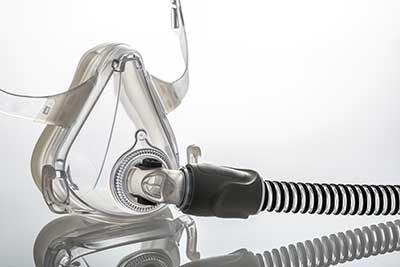Philips Ventilator Cancer in Minnesota
Information on FDA Philips Warning for CPAP & BiPAP Cancer for Minnesota Residents
In June of 2021, Royal Philips of the Netherlands announced a widespread global recall of 3-4 million CPAP, BiPAP and ventilator breathing machines due to a risk of developing cancer. Consumers in Minnesota learned they were exposed to a risk of Philips BiPAP cancer when a foam component in the recalled breathing devices begins to degrade or break down. The foam part, which is used for sound abatement, is found in BiPAP, CPAP and ventilators made by Philips; persons in Minnesota using the devices listed in the recall have been exposed to a risk for Philips ventilator cancer.

The foam components in question are prone to breaking down over time and through exposure to heat and humidity, as well as through non-recommended cleaning substances such as ozone. The risk of Philips BiPAP cancer in Minnesota occurs when toxic particles and gases from the foam are pushed out through the device's airstream. Minnesota patients breathe this air directly into their lungs through a mask.
According to the FDA, any person using a device that poses a risk for Philips CPAP cancer in Minnesota should stop using that machine immediately, if possible. Sleep apnea patients who have been exposed to the Philips ventilator cancer risk in Minnesota should cease the use of their recalled machine promptly to avoid further danger of Philips CPAP cancer. For patients in Minnesota who are reliant on a life-supporting mechanical ventilator included in the Philips cancer recall list, the FDA advises their care provider in Minnesota transfer them to an alternate device if and when possible.
Attorneys handling Philips BiPAP cancer lawsuits in Minnesota believe persons and family members of persons who have developed cancer or another serious side effect and have a history of using one of the recalled machines may be eligible for significant compensation. This page provides a comprehensive look at Philips ventilator cancer risks and warnings for residents of Minnesota.
Minnesota Residents Face Cancer Risk from Philips CPAP, BiPAP and Ventilator Machines
Philips is a major manufacturer of many different medical products and devices, and sells them in Minnesota and on a major global scale. The recall issued by the company in June of 2021 concerned three specific kinds of breathing devices that cause cancer in Minnesota: continuous positive airway pressure or CPAP machines; bilevel positive airway pressure or BiPAP machines; and mechanical ventilators. The first two, CPAP and BiPAP, are used by Minnesota patients suffering from sleep apnea; the latter provides life support to Minnesota patients.
Company officials evidently learned of the risk of Philips ventilator cancer through complaints filed by consumers and medical providers, stating patients were becoming ill as a result of the foam component breaking down. No one knows when the company first learned about the risk for Philips CPAP cancer, but the first external indication of this danger for Minnesota residents came in April of 2021, when Philips noted there had been a “quality issue†detected with these devices.
This first mention of Philips BiPAP cancer came in a shareholder report. The public, including doctors and patients in Minnesota, was not notified until June of 2021, when the company released its ventilator cancer warning and recall that now affects many families in Minnesota.
The risk for Philips CPAP cancer to Minnesota residents comes when a foam component in the device degrades, releasing toxic particles and gases into the device's airflow. These carcinogenic substances are then directly inhaled by Minnesota users of recalled breathing machines.
FDA Philips BiPAP Cancer Warning Information for Minnesota
On June 14, 2021, the Philips CPAP cancer warning and recall was issued for an estimated 3-4 million products in use around the world, including some used by persons in Minnesota. The products included in the recall were those that utilized the problematic foam component and thus posed a risk for ventilator cancer.
The foam component is a substance referred to as PE-PUR, which stands for polyester-based polyurethane. Used to dampen the noise of the machine, this part has been found to degrade over time. Exposure to humidity and heat cause the foam to break down, as can non-approved methods for cleaning a BiPAP machine such as ozone.
The risk for Philips CPAP cancer in Minnesota comes when this part degrades, releasing toxic particles and gases into the device's airflow. These carcinogenic substances are then directly inhaled by the user of a recalled breathing machine in Minnesota. According to the FDA ventilator cancer warning, inhalation of these harmful substances may result in the following problems for Minnesota residents:
- Risk of cancer, or "toxic and carcinogenic effects"
- Headache and dizziness
- Irritation of the eyes, skin and respiratory tract
- Hypersensitivity
- Nausea and vomiting
Who can file a ventilator recall lawsuit?
Patients who have used one of more than twenty different types of breathing machines included in the Philips CPAP, BiPAP and ventilator recall and then developed cancer or another serious medical problem may be eligible to file a claim against the Dutch manufacturer. Click here to learn more.
The following devices were recalled, citing a risk for Philips BiPAP cancer:
- All Philips CPAP devices manufactured before April 26, 2021, under all serial numbers
- All Philips BiLevel PAP devices manufactured before April 26, 2021, under all serial numbers
- E30 model continuous ventilator, minimum ventilatory support for facility use
- DreamStation non-life supporting continuous ventilator models ASV, ST, and AVAPS
- SystemOne ASV4 model continuous ventilators, non-life supporting
- C Series continuous ventilator, non-life supporting models ASV, S/T, and AVAPS
- OmniLab Advanced Plus in-lab titration device
- SystemOne Q series models of non-continuous ventilators
- DreamStation CPAP, Auto CPAP, and BiPAP ventilator models
- DreamStation Go CPAP and APAP models of non-continuous ventilators
- Dorma 400 and 500 CPAP models of non-continuous ventilators
- REMStar SE Auto CPAP models of non-continuous ventilators
- The Trilogy 100, Trilogy 200, Garbin Plus, Aeris, and LifeVent continuous ventilators
- The A-Series BiPAP V30 Auto and Hybrid A30 continuous ventilators for minimum ventilatory support for facility use
- Outside the United States, the A-Series BiPAP A30 and A40 non-life supporting continuous ventilators
According to the FDA Philips ventilator cancer warning, patients in Minnesota utilizing the recalled devices should be moved to a different machine if at all possible.
Philips Life Support Ventilators Found May Cause Cancer in Minnesota Patients
Roughly half a million of the devices included in the Philips BiPAP cancer recall are life-supporting mechanical ventilators. These devices are an essential tool in Minnesota intensive care units, maintaining ventilation when a patient cannot do so. It is particularly horrible to learn that a device designed to save life in such extreme circumstances also puts Minnesota patients at risk for life-threatening disease when by emitting toxic and carcinogenic substances.

According to the FDA Philips CPAP cancer warning, medical providers have been instructed to halt the use of these dangerous devices as soon as is feasible in their Minnesota patients.
Philips BiPAP and CPAP Sleep Apnea Machines May Cause Cancer in Minnesota Patients
Approximately 80% of the 3-4 millions breathing machines included in the Philips CPAP cancer recall are devices used to treat sleep apnea in Minnesota. These machines fit into two distinct categories: bilevel PAP machines and CPAP machines. An estimated 20 million Americans suffer from sleep apnea. Untreated, this condition results in poor and disrupted sleep and is a risk factor for stroke, heart problems and premature death.
By supporting continuous and regular breathing throughout sleep, CPAP and BiPAP machines improve health outcomes for Minnesota persons diagnosed with sleep apnea. However, when a device designed to reduce one type of health risk causes another severe health risk for Minnesota residents, Philips BiPAP cancer, it is no surprise that patients are angry. Countless residents of Minnesota and millions of other Americans have been using these sleep apnea devices every night with no prior warning of the risk for cancer. Anyone in Minnesota currently using a machine on the recall list is recommended to stop use of the dangerous device immediately in order to mitigate the risk of Philips CPAP cancer.
Let Our Philips CPAP Cancer Attorneys Serving Minnesota Help You
Our lawyers specialize in holding large corporations accountable when they've placed profits ahead of safety. Through settlements and winning verdicts, our attorneys have obtained millions for our clients. Let us help you today.
Philips BiPAP Cancer Lawsuits for Minnesota Residents
Filing a lawsuit will allow you to hold the pharmaceutical company accountable for damage it has caused you or a loved one, while also providing real compensation for your medical expenses, suffering and loss. Contact us today for a free consultation.








